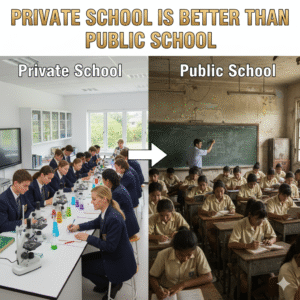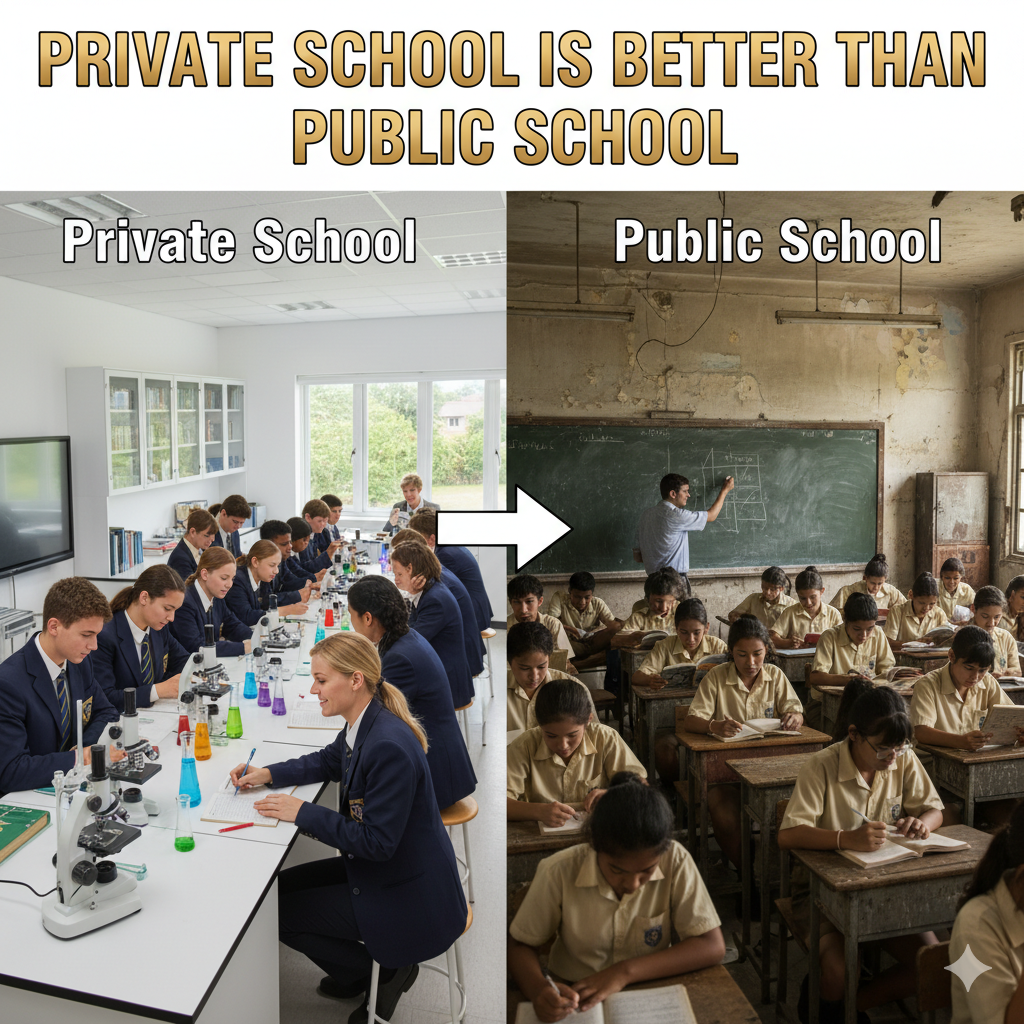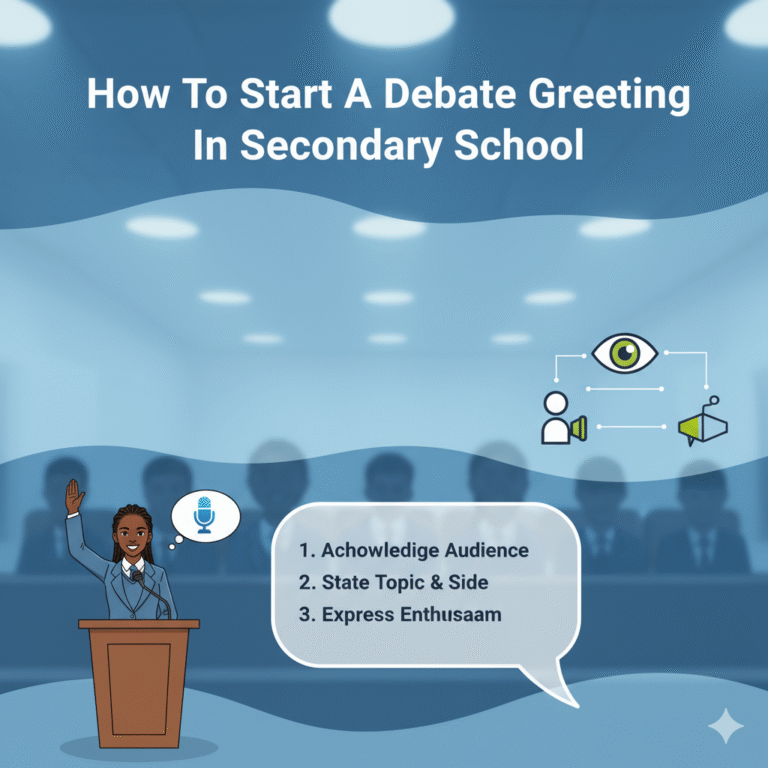Debate: Private School is Better Than Public School (6 Winning Points)
Debate: Private School is Better Than Public School (6 Winning Points)
Good day, students! Looking for the winning points for your next debate? You’ve come to the right place.
This post gives you a full script supporting the motion that private school is better than public school.
It’s a straightforward topic. We’re comparing schools run by private individuals or organizations (where parents pay fees) against schools run and funded by the government.
Now, before we jump in, let’s be clear. This is for an educational debate. We respect all teachers and students, whether in public or private systems. These points are just a tool to help you argue your side effectively.

Winning Debate Points on Why Private School is Better Than Public School
Here is the script you can adapt. You can deliver these points with confidence.
1. Smaller Class Sizes Lead to Individual Attention
Good day, Mr. Chairman, panel of judges, accurate timekeeper, co-debaters, and my fellow students. I am here to state, clearly and firmly, that private school is better than public school.
My first and most important point is about smaller class sizes.
Think about it. In many private schools, you might have 20 or 25 students in a class. This is a manageable number. But in many public schools, you can find 60, 80, or even 100 students in one classroom. How can a teacher possibly give any student individual attention?
The truth is, they can’t. A better student-teacher ratio means the teacher in a private school knows your name, knows your weaknesses, and can help you one-on-one when you are struggling. That personal touch is the key to real learning.
2. Access to Better Resources and Facilities
My second point is about the tools we learn with. Private schools, because they are funded by fees, simply have better resources.
I’m talking about modern computer labs, well-stocked libraries, clean toilets, and functional science laboratories. These school facilities aren’t just for show. You can’t learn 21st-century skills with 20th-century tools.
This access to technology, good books, and quality science equipment directly improves a student’s academic performance.
3. A Safer and More Disciplined Environment
Let’s talk about the learning environment itself. Discipline is key.
Private schools are known for enforcing rules strictly. Because the classes are smaller, it’s easier to manage students, maintain order, and stop bullying before it starts. This creates a safer environment for learning.
When students feel safe and know that rules are enforced, they can focus on their books, not on watching their backs. This serious and disciplined atmosphere is a major advantage.
4. More Extracurricular Activities
Another key point is that education is not just about what happens in the classroom.
Private schools invest heavily in extracurricular activities. I mean sports teams, debate clubs (like this one!), music, art, and coding clubs. These activities build our confidence, teach us teamwork, and give us skills for life.
Many public schools, due to a lack of funds or space, just can’t offer this wide variety. This means private school students often get a more well-rounded education.
5. Higher Teacher Accountability
My fifth point is about the teachers. In a private school, the school management (and the parents who pay!) hold teachers to a very high standard. They must perform.
This accountability means private schools often attract and keep very qualified teachers who are dedicated to their jobs. They are paid to deliver results, and this serious attitude passes down to the students. This directly leads to higher academic standards.
6. Stronger Parental Involvement
Finally, let’s talk about the parents. When parents pay school fees, they are invested. They are active partners in their child’s education.
They don’t just drop their child at the gate. They attend PTA meetings. They communicate with teachers. They are involved. This parental involvement is a huge factor in a child’s success. In fact, global bodies like UNICEF have repeatedly stressed that involved parents are a key ingredient for better educational outcomes. Private schools are built on this partnership.
Frequently Asked Questions (FAQs)
What’s the main argument against private schools? The biggest argument is, of course, cost. Many people feel they are too expensive and that a good education should be available to everyone, not just those who can pay.
How do I conclude this debate speech? A strong way to finish is to summarize your main points—like “smaller classes, better resources, and a safer environment”—and then restate your motion with confidence. For example: “And that is why, Mr. Chairman, I stand firmly on the motion that private schools are, indeed, better than public schools.”
Does this mean all public schools are bad? Not at all. There are many excellent public schools and incredibly dedicated teachers. But for this debate, we are arguing that on average, the advantages of the private school system (like funding, resources, and class size) make it the better option.
Conclusion / Summary
So, there you have it! The argument that private school is better than public school is strong.
It’s built on clear facts: smaller class sizes mean more individual attention, better funding means better school facilities, and higher accountability creates a safer, more disciplined environment for learning.
Remember, this is a script for an educational competition. Every teacher, in every school, deserves our respect. Both systems are vital for Nigeria’s future. This article is just a tool to help you win your debate.
What do you think? Did I miss any strong points? Drop your opinions in the comments section below! And don’t forget to share this post with your debate team members.








One Comment